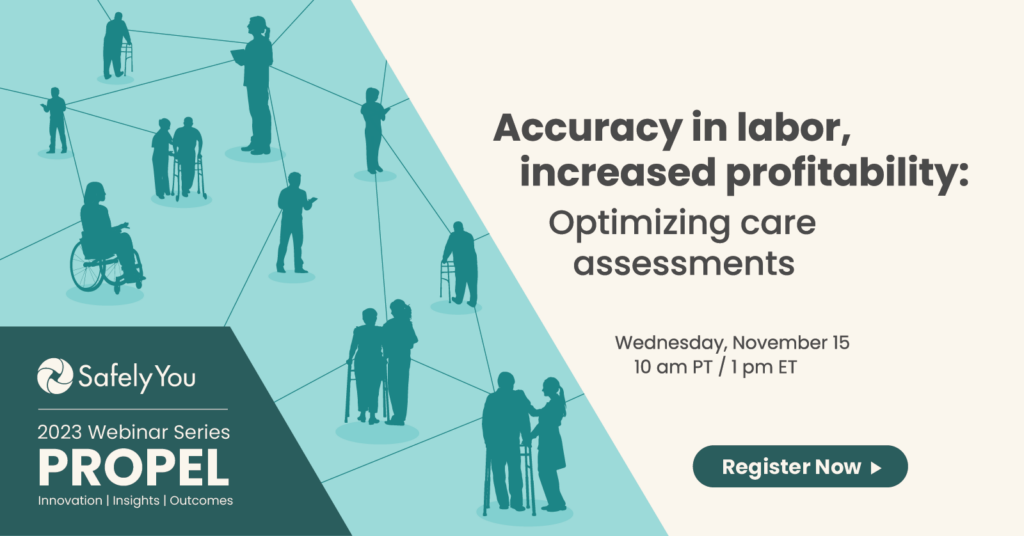Adults living with dementia in assisted living and skilled nursing communities fall four times per year on average — nearly twice as often as those without dementia. An estimated 80% of falls in memory care communities are unwitnessed. Since every unwitnessed fall could result in a head injury, care staff often must call emergency services. It is vital to reduce these calls due to the COVID-19 pandemic, so some care staff are turning to videos to help them determine the root cause of a fall and address the issue internally.
Ways to Reduce Falls in Memory Care with AI-enabled Video Technology
In one such memory care community, which uses SafelyYou’s AI-enabled fall detection technology to detect falls, they recorded five falls for one resident living with dementia. She was continuously bending over to touch the ground and retrieve items from low drawers.
In addition, she has fairly severe OCD and the pattern on the carpet bothers her. So, she has a habit of trying to pick up what she sees as items or fibers on the floor, but it’s actually just the carpet pattern. After watching several videos and sharing with the medical technician and the resident’s physical therapist, they discovered that the medication she was on for hypertension was actually causing her to have postural hypotension.
Due to her low blood pressure, she would get dizzy and fall when she stood up after bending down. The care staff requested a medication change from her doctor and are now monitoring her blood pressure. They are very excited that the fall detection videos helped them to figure this out so they could easily treat the resident and avoid calling emergency services.
At another memory care community that uses fall detection videos, a resident without a history of falling experienced four falls in under a week. This resident was known to be calm and socially active, but the fall videos showed her to be agitated, frustrated and restless. The memory care coordinator used the fall videos to observe these changes and questioned whether recent prescriptions could be causing the shift in behavior. A visit to the doctor and a medication adjustment made all the difference, and the resident has not fallen in over four months.
Since people living with dementia have a hard time describing why a fall happened and their source of pain, videos help the care staff determine why falls are happening and analyze if the resident’s medication is a contributing factor and even reduce falls in their memory care communities.





